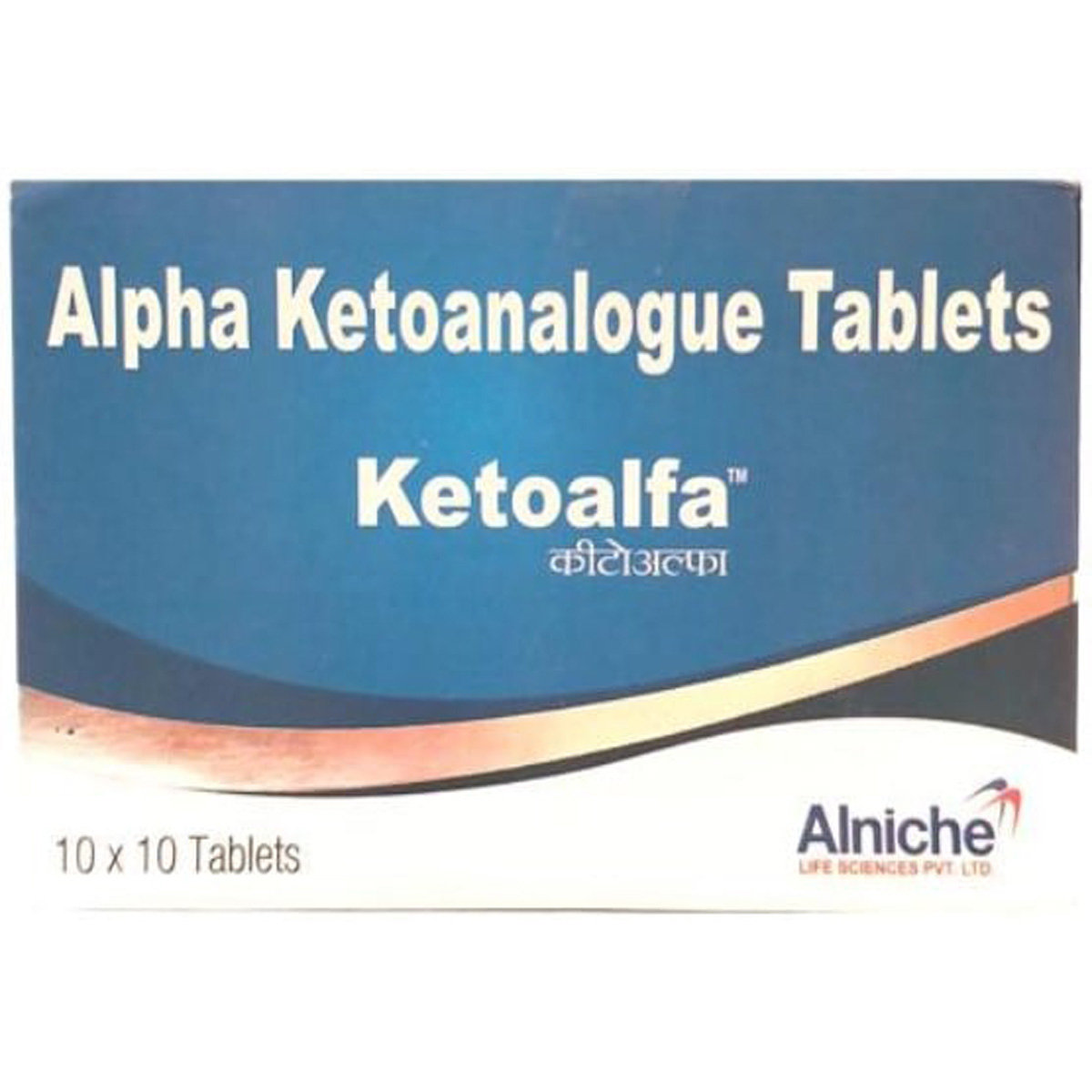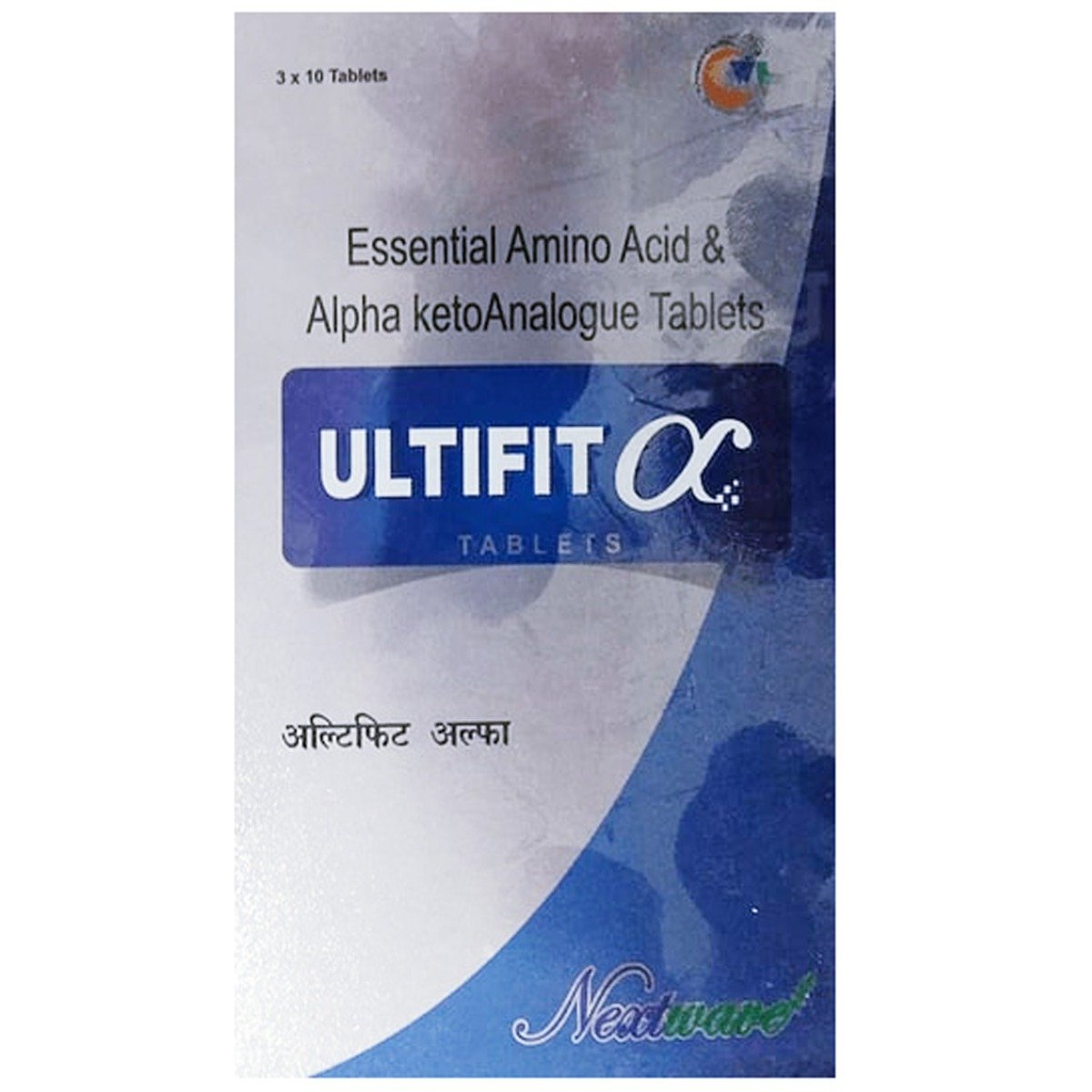Cytoshine Tablet 10's
MRP ₹379
(Inclusive of all Taxes)
₹56.9 Cashback (15%)
Provide Delivery Location
Online payment accepted
 Prescription drug
Prescription drugWhats That
Manufacturer/Marketer :
Consume Type :
Expires on or after :
Return Policy :
Description
Cytoshine tablet is a nutraceutical supplement used to treat chronic renal disease in conservative management therapy individuals. It aids in delaying the progression of renal disease during the pre-dialysis period when combined with a very low protein diet or a low protein diet. Cytoshine tablet contains amino acids in the form of keto analogues that help improve health. Alpha-Ketoanalogue, L-Lysine, L-Threonine, L-Tryptophan, L-Histidine and L-Tyrosine are the essential components of the Cytoshine tablet.
Directions for Use
Swallow the entire tablet with water; do not crush or chew it. Please take the Cytoshine tablet in the dose and duration suggested by your doctor.
Side effects
- Nausea
- Vomiting
- Diarrhoea
- Abdominal pain
Key Benefits
- The Cytoshine tablet comprises the necessary amino acids for uremic patients.
- It decreases nitrogen supply and provides calcium.
- It aids in the treatment of chronic kidney disease patients on conservative management therapy (CKD stage I, II, III).
- It slows the progression of renal disease during the pre-dialysis period.
- It also promotes the production of muscle protein.
All Substitutes & Brand Comparisons
RX
Out of StockFive Keto Tablet 10's
Ramani Enterprises
₹300
(₹27.0 per unit)
20% CHEAPERRX
Ketoalfa Tablet 10's
Alniche Life Sciences Pvt Ltd
₹370
(₹32.56 per unit)
4% CHEAPERRX
Ultifit Alpha Tablet 10's
Lifeline Remedies India Pvt Ltd
₹379.5
(₹34.16 per unit)
Safety Information
- Keep your physician informed about your medical condition and medicines before taking the Cytoshine tablet.
- Consult your doctor if you are pregnant, planning to become pregnant, or are breastfeeding.
- Limit or avoid alcohol consumption.
- Quit smoking.
- Keep the Cytoshine tablet away from sight and reach out to children.
- Store it in a cool and dry place, away from direct sunlight.
FAQ
Question: How can Cytoshine tablet aid with kidney health?
Answer: Alpha Ketoanalogue is a nutritional supplement. It works by enhancing protein metabolism in the body and thereby improving kidney function by following the same catabolic routes as amino acids.
Question: Is the Cytoshine tablet suitable for all patients with kidney problems?
Answer: Cytoshine tablet is usually administered to patients with a glomerular filtration rate (GFR) of less than 25ml/min.
Question: Can I stop taking Cytoshine tablets on my own?
Answer: To treat your condition effectually, continue taking the Cytoshine tablet for as long as your doctor has prescribed. Please do not stop taking Cytoshine tablets without consulting your doctor.
Question: What are the main causes of chronic kidney disease (CKD)?
Answer: High blood pressure, diabetes, high cholesterol, kidney infections, kidney inflammation, recurring kidney stones, an enlarged prostate, and long-term, frequent use of certain medicines such as lithium and nonsteroidal anti-inflammatory drugs (NSAIDs) are common causes of CKD.
Question: What are the symptoms of chronic kidney disease?
Answer: There are usually no symptoms of kidney disease in the early stages. However, in the advanced stage, symptoms may include tiredness, swollen ankles, feet or hands, shortness of breath, feeling sick, and blood in the urine at a more advanced stage.
FAQs

Have a query?








